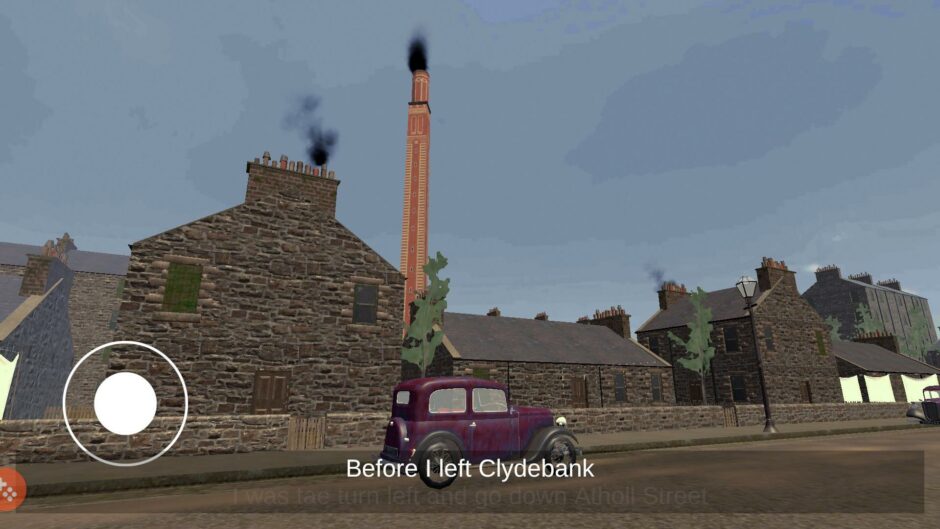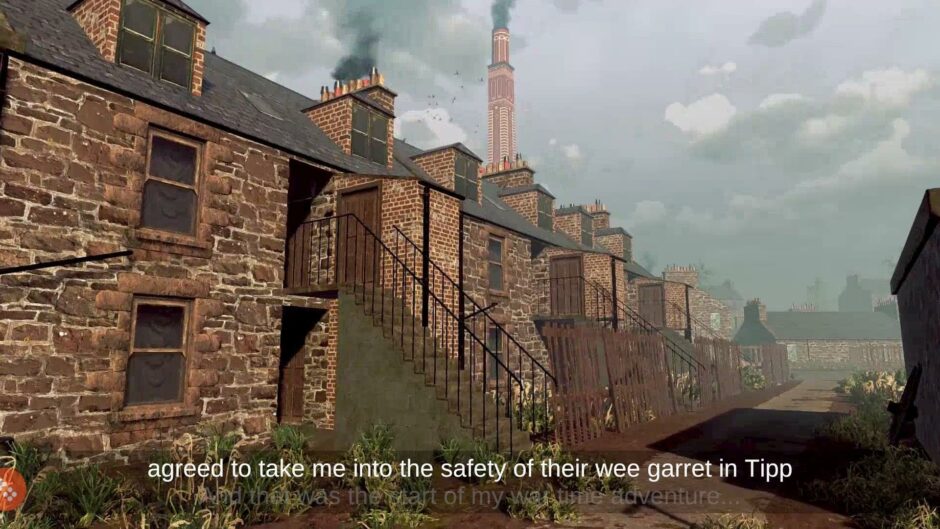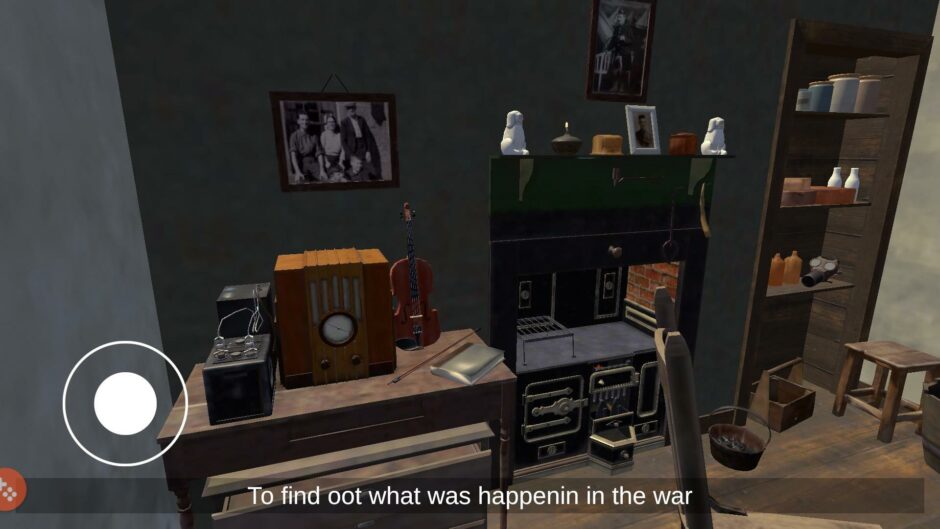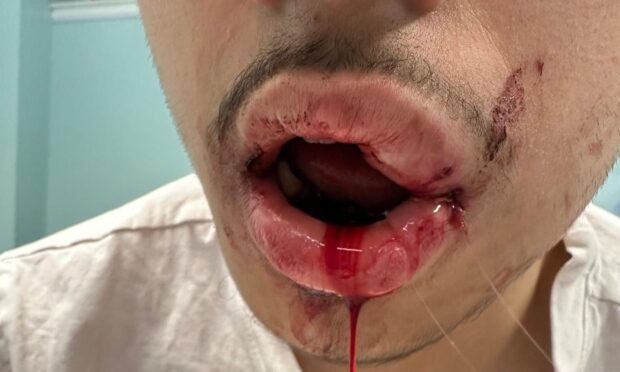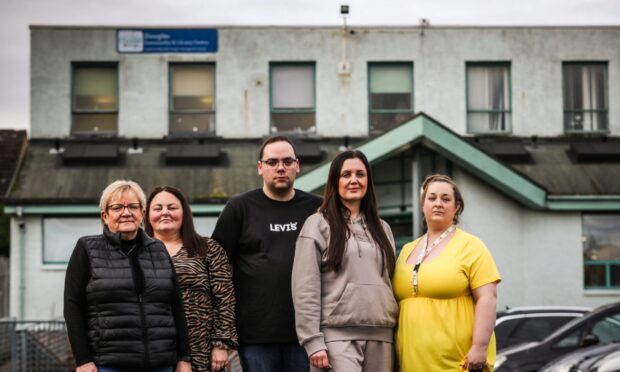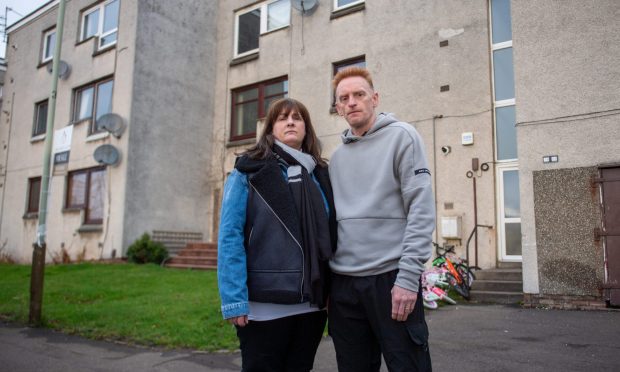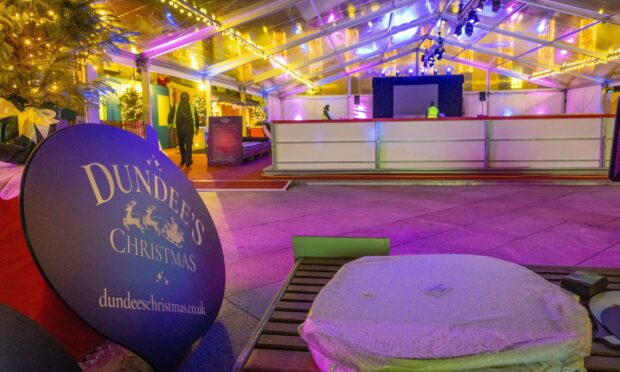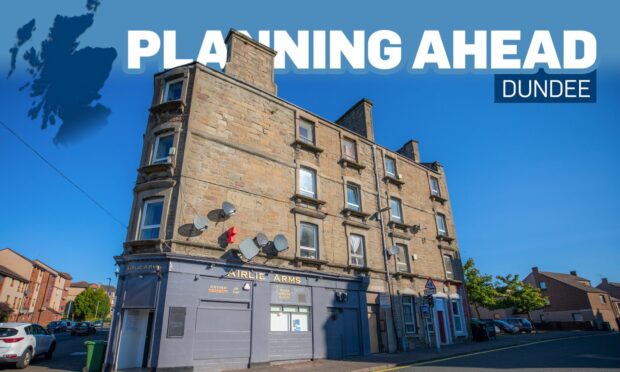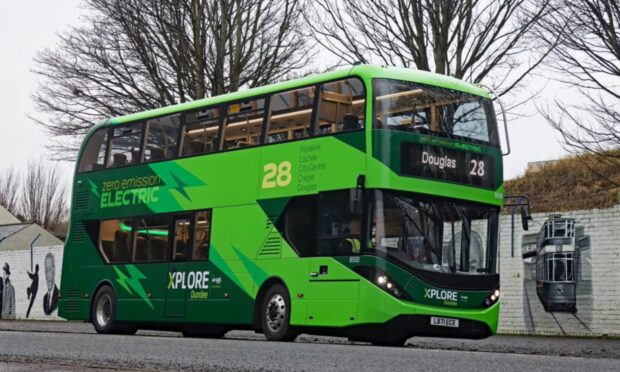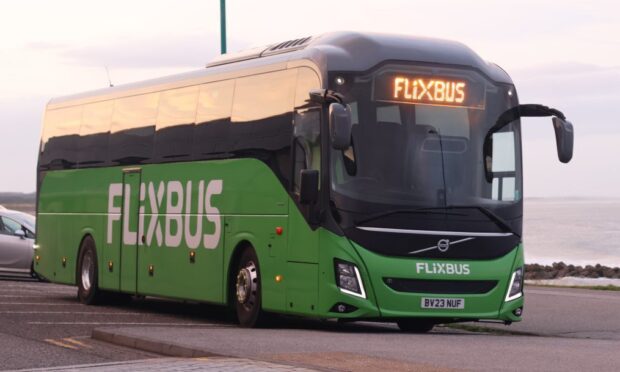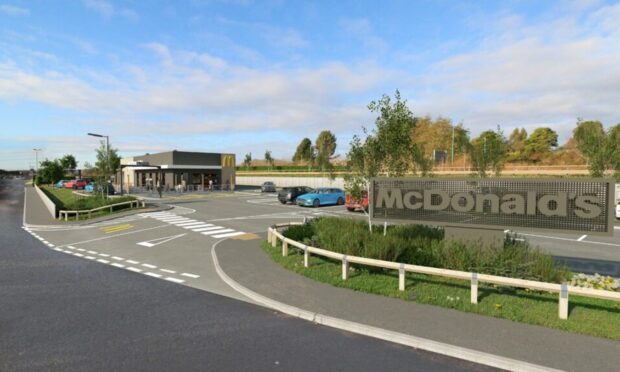A new augmented reality game will allow users to explore the streets of Lochee in 1940s Dundee.
The game, called Tipperary, was created by Dundee-based games company Konglomerate Games.
The area was locally known as Tipperary due to many Irish immigrants settling there in the 19th Century.
The game features a 3D interactive reconstruction of the old houses and streets in Lochee.
Developers invite users to immerse themselves in the historical location by living, working and socialising in this reconstructed reality.
The user plays as 10-year-old Robert Gallacher who was sent to Lochee from his home in Clydebank during the blitz in 1941.
Robert has moved in with his aunt Mary’s family in their very cramped house.
He will slowly get to know the area as he wanders the streets and plays with his cousins.
‘There still flickers a sense of pride’
Michael Garty headed up the Tipperary augmented reality project.
He said: “This project was envisaged as a digital love letter to Lochee from its ain folk who fondly remember streets and places that created the community that made Lochee special.
“We have created a digital 3D interactive Tipperary – which was the beating heart of Lochee – using the augmented reality technology to bring long demolished streets back to life.
“The genesis was photographs and memories curated by the Lochee local history group.
“Our ambition was to bring back memories of streets full of working people going about their lives.
“Today Lochee is stigmatised: the social problems are there for all to see.
“But beneath the surface, there still flickers a sense of pride in what used to be and hope that it can be restored.”
Michael hopes to recreate the Lochee many Dundonians will remember, including those who have moved away from the area.
He added: “We hope that the Lochee diaspora flung far and wide in the US, Canada and Australia will take advantage of the technology and come home to Lochee if only for a few minutes by using the app.”
The app is free to download on the Google Play store.
The game will be permanently installed on the local history group’s dedicated PC in the Lochee Community Library on Tuesday April 19.
